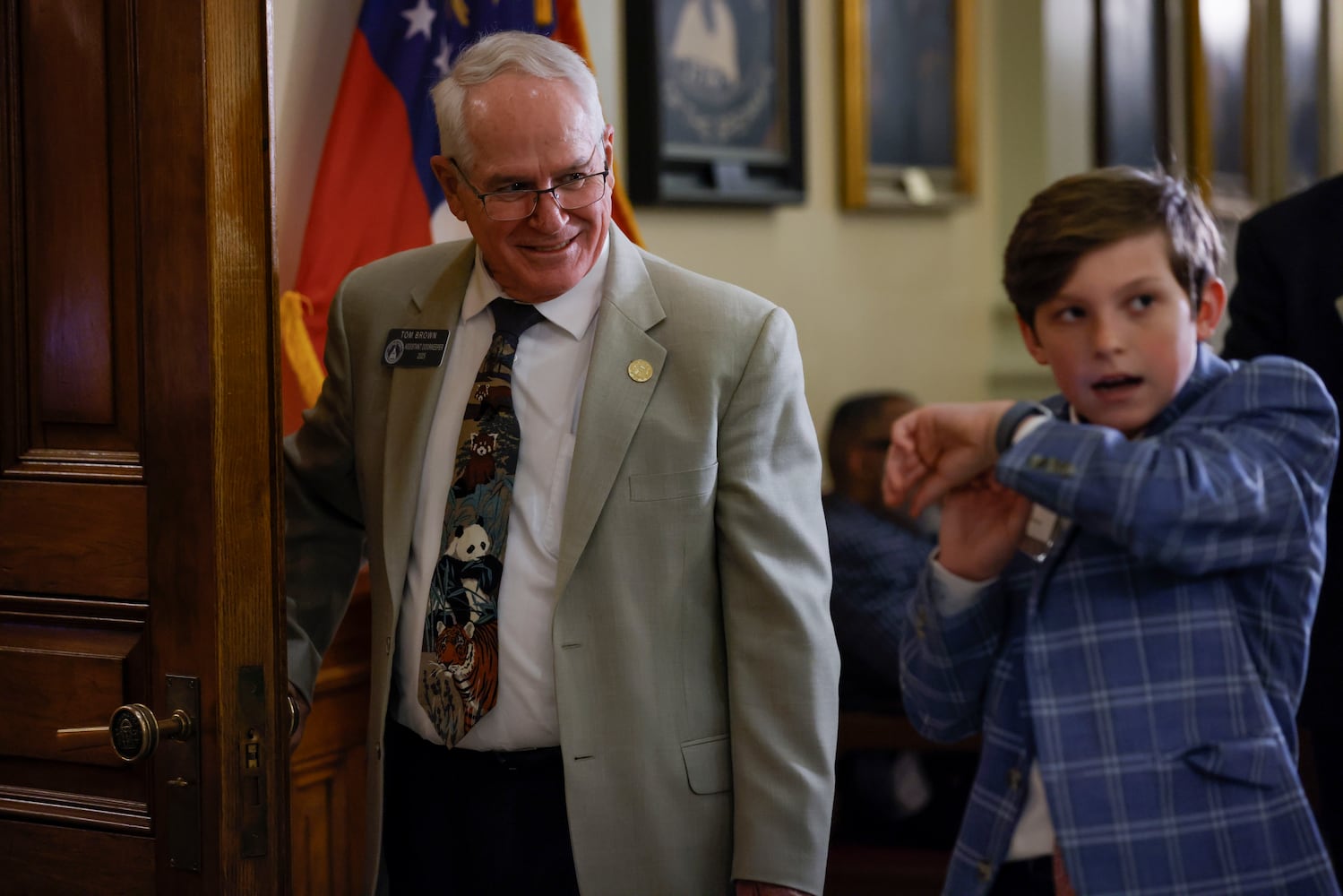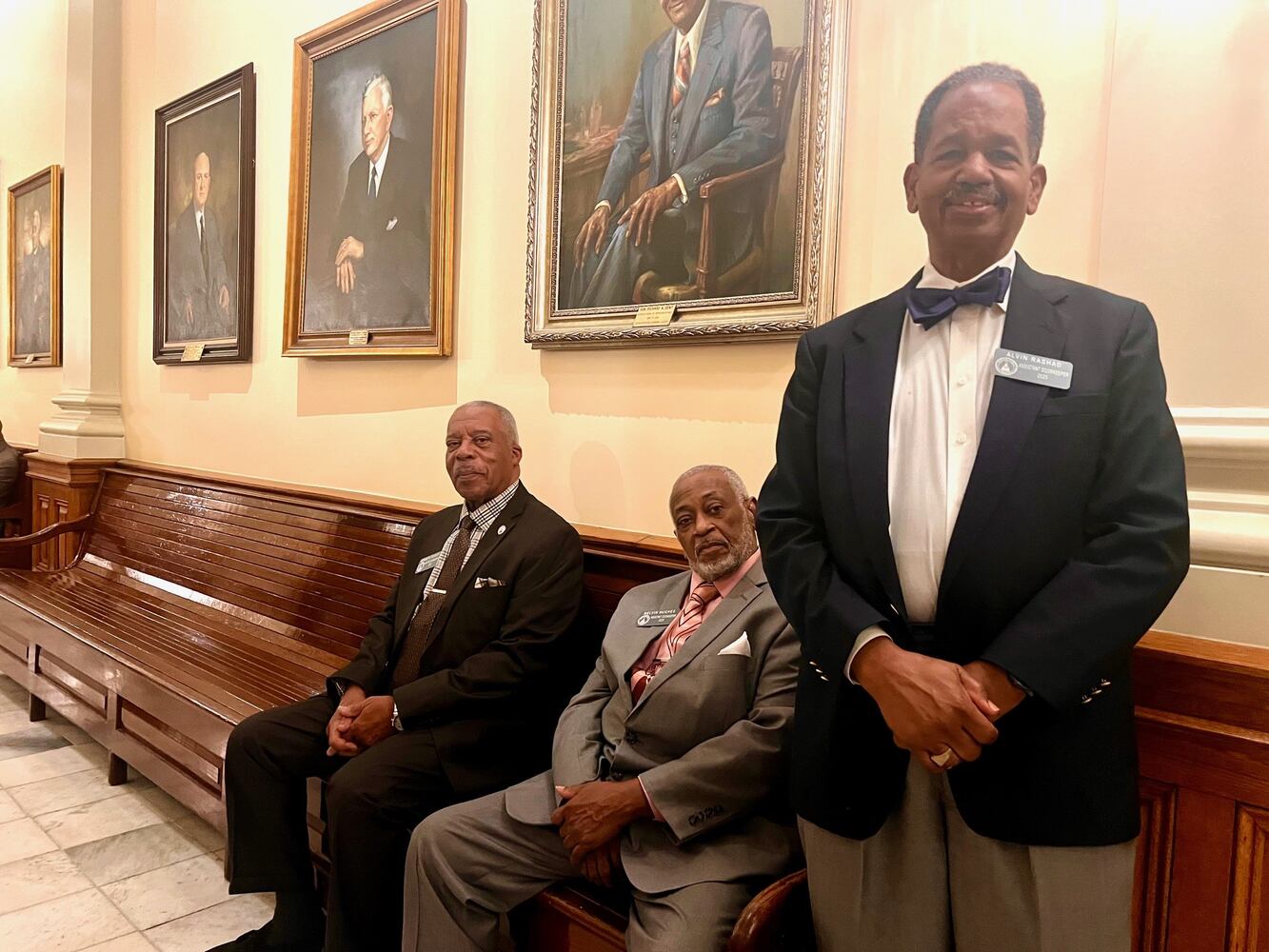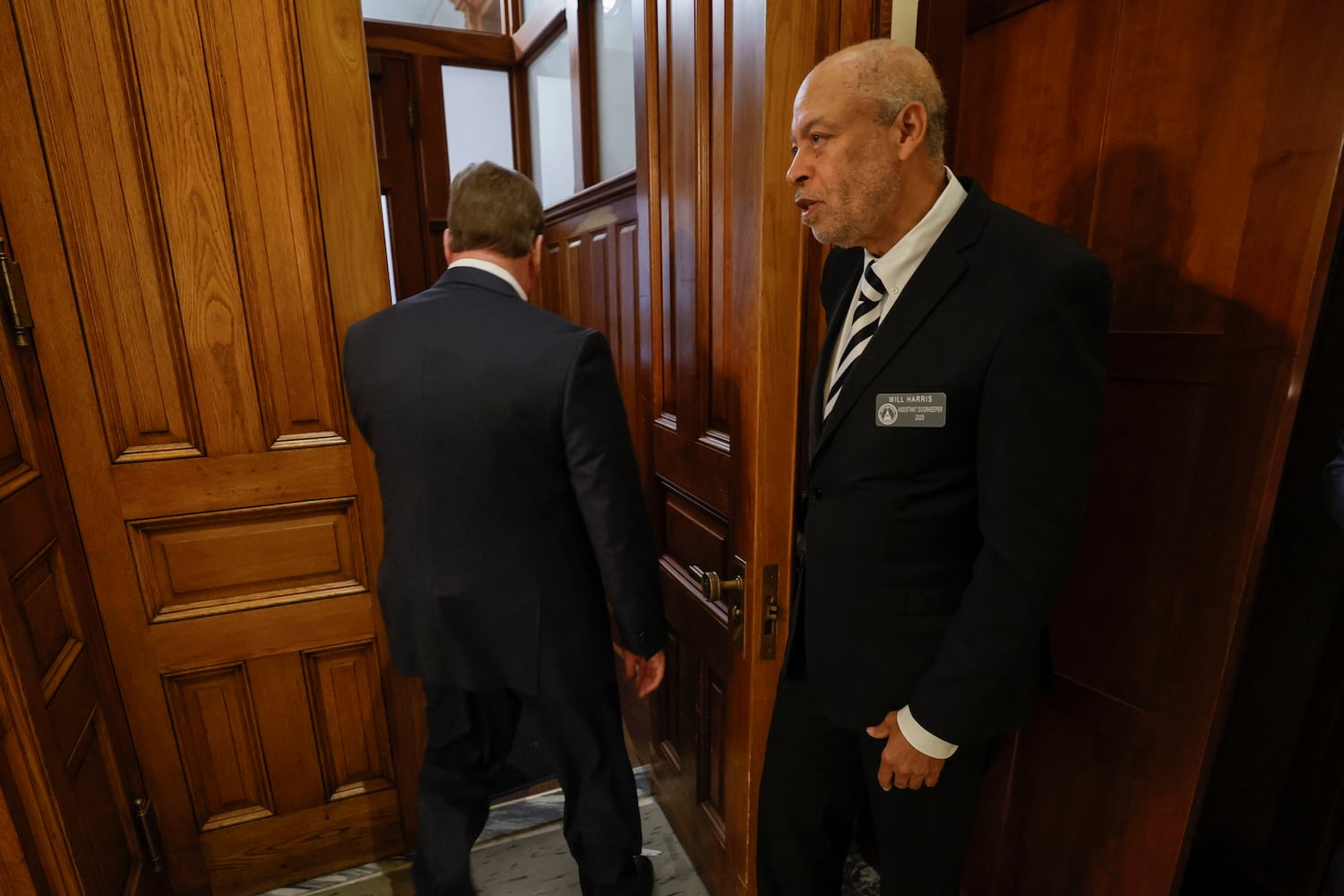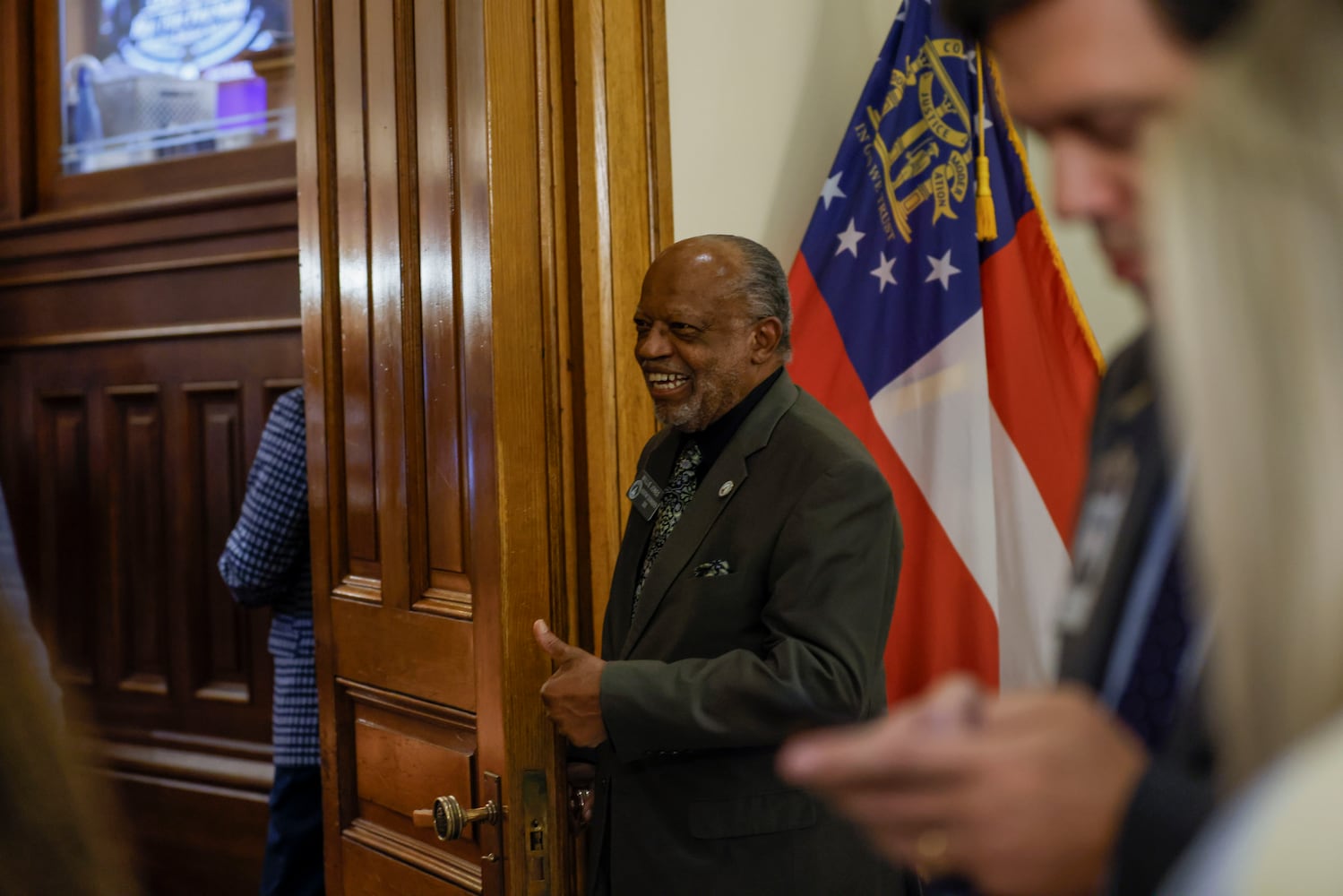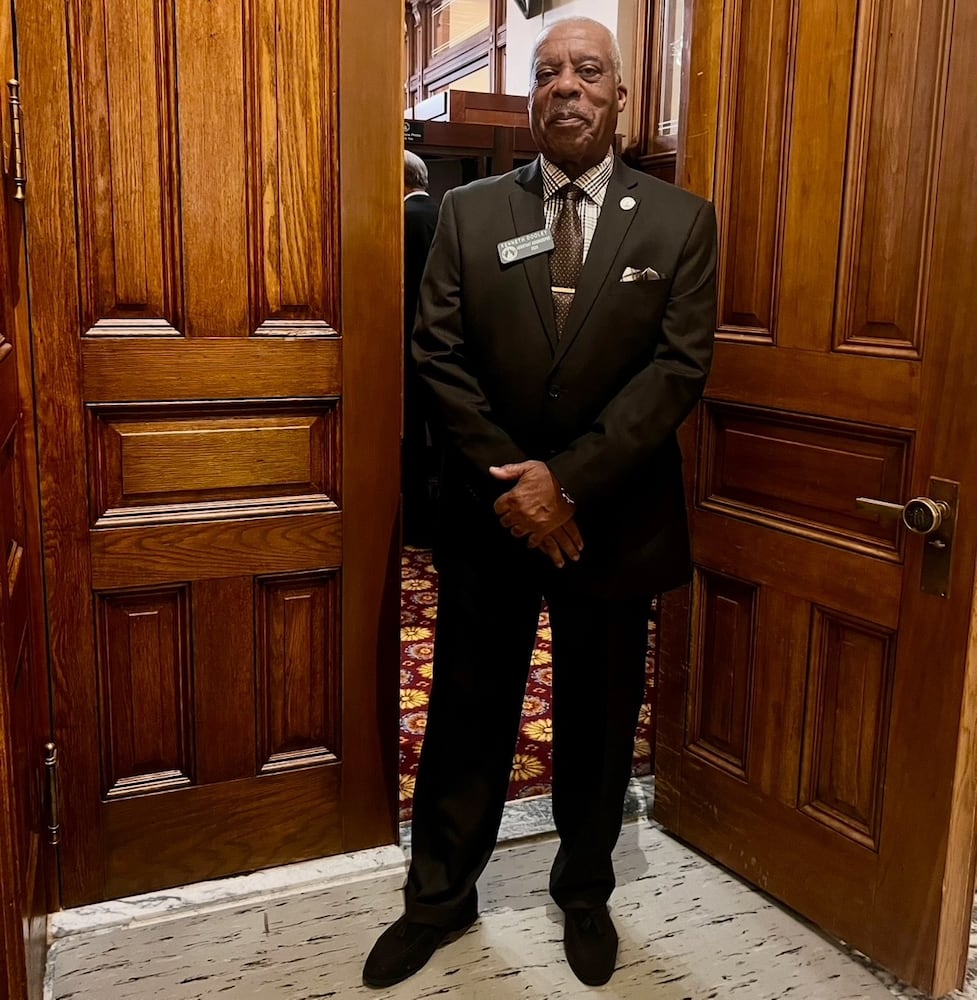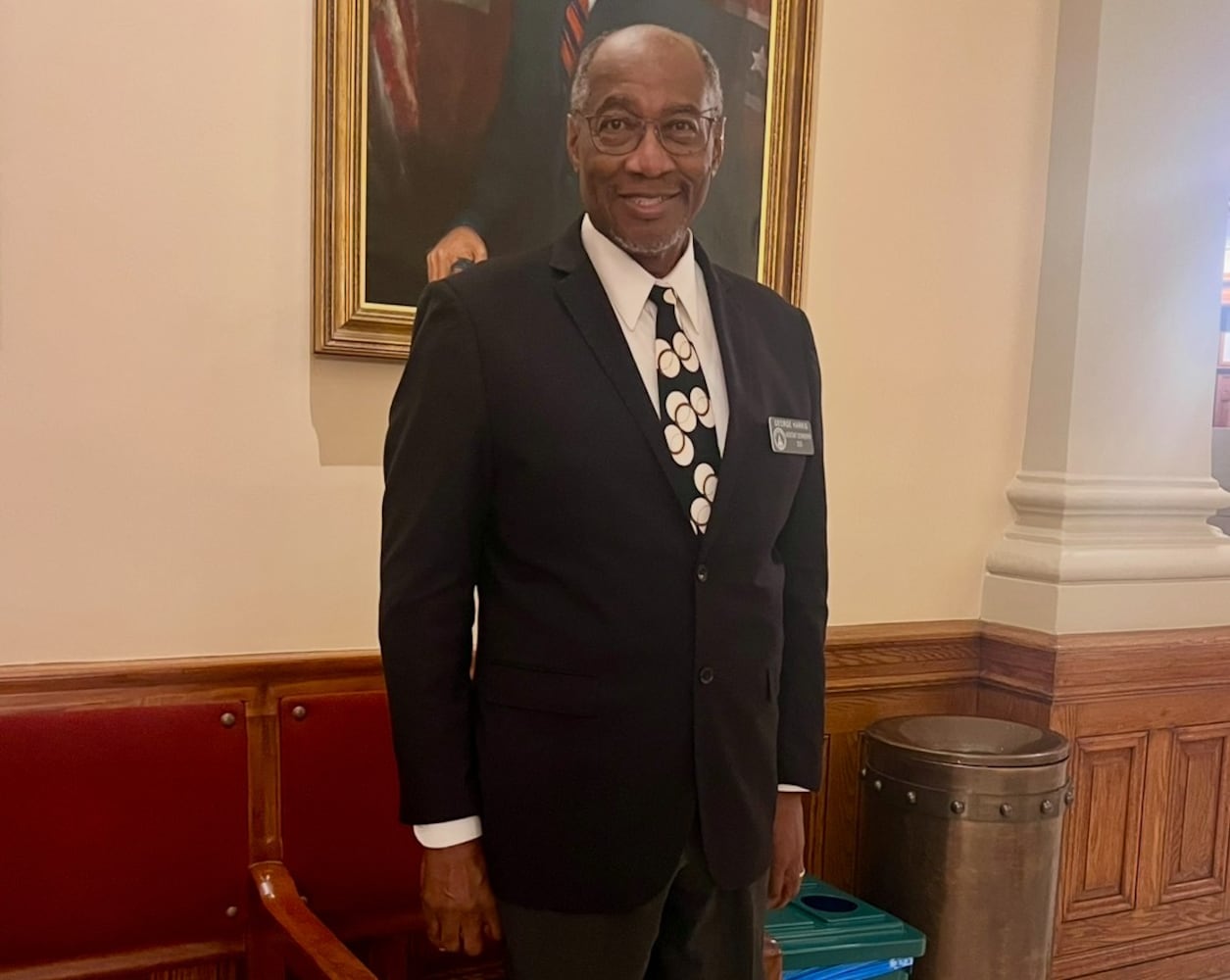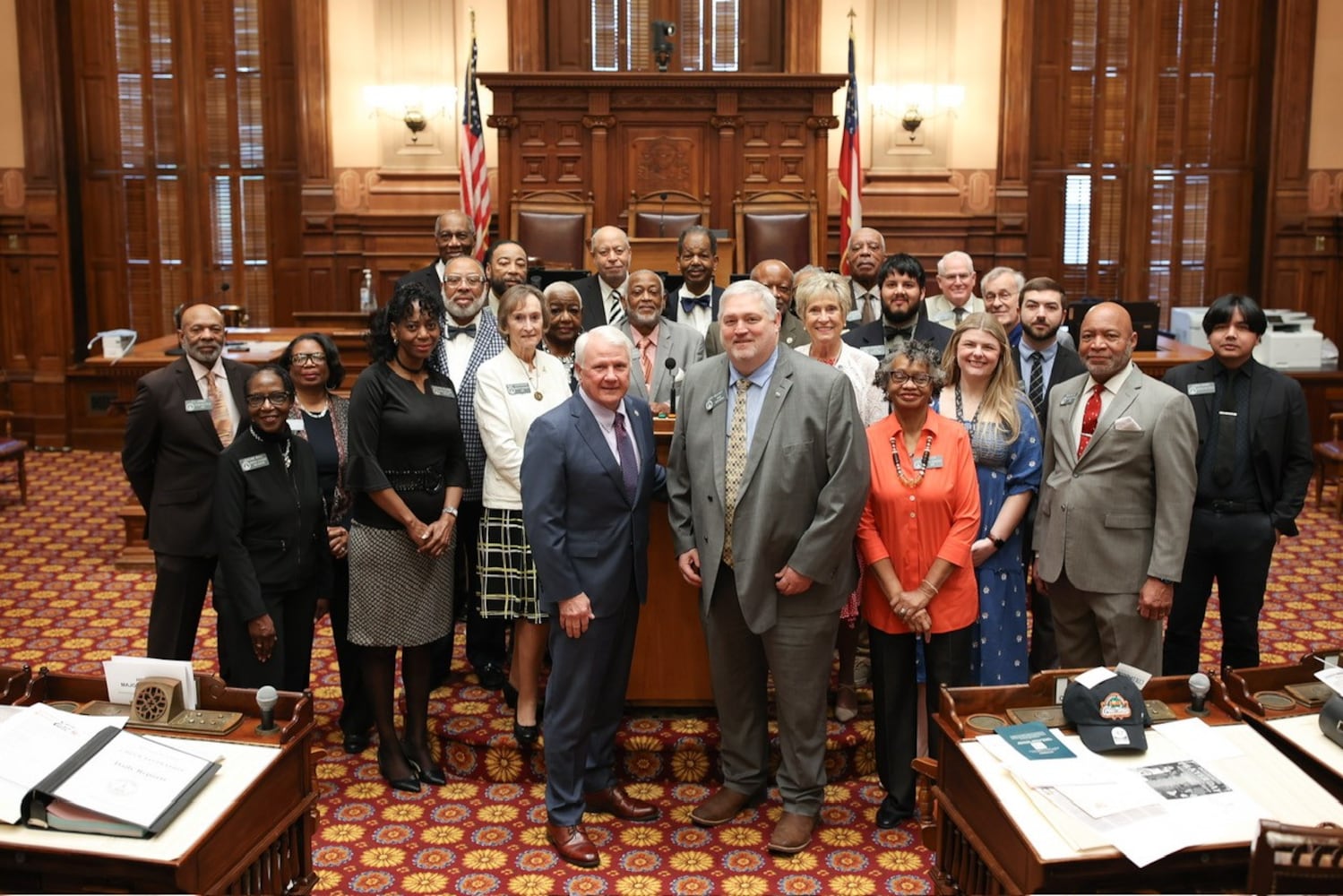For every moment that the Georgia General Assembly has been in session for the last 40 days, the 17 House doorkeepers and their counterparts in the state Senate have been there too, guarding the doors, enforcing the chambers’ rules and modeling decorum in the Capitol, even when lawmakers themselves may fall short.
The head House doorkeeper, Corey Mulkey, had a high-profile scrape with state Sen. Colton Moore, R-Trenton, earlier this year after the lawmaker’s floor privileges had been revoked. But the rest of the legislative session has unfolded as usual, with days getting longer, tempers shorter and the doorkeepers, as always, standing by.
The doorkeeper role dates back to the Continental Congress, when an appointed doorkeeper maintained order outside the chamber as representatives hashed out disagreements inside. Nearly 250 years later, the U.S. House and Senate in Washington have doorkeepers too, as do dozens of state capitols.
At the Capitol in Atlanta, you’ll find Willie Jones at the main entrance to the House floor. He’s a Vietnam veteran with a law degree and business degree. And when he’s not at the Capitol, he’s pastoring at his church every other Sunday.
He’s been fascinated by government since the eighth grade, so this job is a perfect fit. “I call it democracy at its finest,” he said.
Jones loves to see members of the public talking to lawmakers, but said he’s also seen lobbyists try to sneak onto the House floor as a debate is happening, which is against the House rules.
“We are instrumental in keeping this process moving,” he said.
Tom Brown often stands with Jones at the House chamber doors. He had retired from 31 years as an executive when a friend from church told him about the job.
When he first started, “I was totally blown away,” he said. “It was controlled chaos.”
His favorite moment on the job came just a few weeks ago as he and a fellow doorkeeper spoke to a rambunctious group of third grade students.
“I told them my best dad jokes,” he said. “And when it was time to leave, a little girl told her teacher, ‘I don’t want to leave the grandpas.’ I’ll never forget that.”
Credit: Courtesy Georgia Speaker of the House
Credit: Courtesy Georgia Speaker of the House
Melvin Hughes has seen firsthand how much the state Capitol has changed since he visited the building as a boy with his mother in the early 1960s. The South was segregated then and the Capitol was, too.
“When I first came here, it was still Black and white, with a white water fountain and a ‘colored’ water fountain,’ ” he said. “I had a bad impression then, but things have changed a lot. Time helps, too.”
Hughes worked for 31 years at the General Motors plant in Doraville and said he never imagined he’d work alongside lawmakers every day. But he’s glad he does.
“I’m a people person and I get to meet a lot of people,” he said. “When I first got here, I wasn’t really politically inclined. Since then, I’ve gotten to see how things work.”
Seeing government function from the inside out is a perk of the job for many of the doorkeepers.
Will Harris retired from Delta Air Lines in 2020 after a career in sales and marketing. As he mans the door outside the House anteroom, he also carries a list of the bills being debated that day. When he’s on a break, he often checks the bills off as they are voted up or down.
“This is history and I’ve always wanted to learn as much as I possibly can,” he said.
Harris compares his job to being an usher in church, with the added responsibility of minimizing distractions for members so that they can get work done for their constituents.
“I try to ask myself every day, how can I be of service?” he said. “That is what drives me, because this is a unique opportunity.”
Harris’ brother-in-law, Thomas Harris, also retired from corporate management and is in his first year as doorkeeper.
Like many of the other doorkeepers, Harris watches the House proceedings on the hallway monitor just off the House floor to keep abreast of what lawmakers are working on.
The only detail he ignores is a members’ party affiliation. “When they come through the door, it’s a person,” he said. “I don’t see the party.”
Upstairs at the visitors’ gallery, you’ll find Alvin Rashad, who is in his second session at the Capitol.
Like all of the other doorkeepers I spoke with, Rashad carefully selects his clothes for the session and, this year, committed to wear a bow tie every day. But first he had to learn how to tie one. “Real men wear bow ties,” he laughed.
Back downstairs, Kenneth Dooley and J.T. Tucker keep watch of the busy door outside the media gallery, the Speaker’s office and the House floor.
“This is a serious job. We keep track of who goes in and who goes out,” said Dooley. He’s a “Grady baby,” born just two blocks away at Grady Hospital and never expected to work at the Capitol years later. “I get to be in the midst of all the hoopla and I just really enjoy people.”
Tucker, who worked in customer service for Delta and multiple airlines before that, is in her first year. So far, “I love people watching,” she said.
Like the lawmakers, the doorkeepers all have plans for when the session is over. Willie Jones wants to do some bowling. Many will be back with grandchildren. Dooley will go for more walks on the Beltline. Rashad wants to spend time flying his drone.
But they all plan to be back when the gavel falls for the next Legislative session. By rule and in reality, the House can’t function without them.
About the Author
Keep Reading
The Latest
Featured

